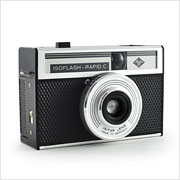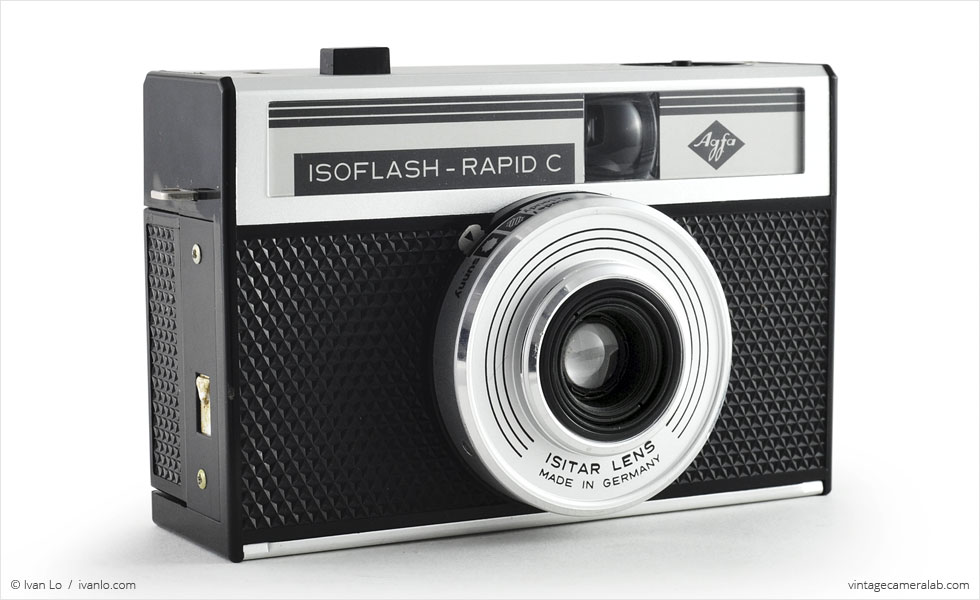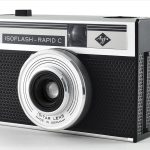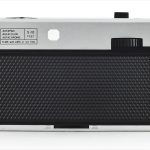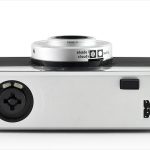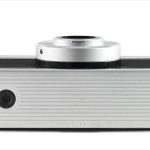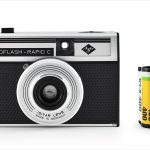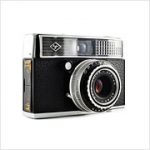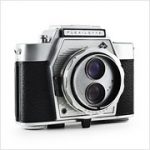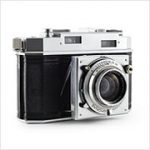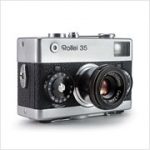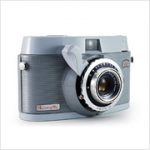Agfa Isoflash-Rapid C Specifications
| Manufacturer: | Agfa AG |
| Origin: | West Germany |
| (modern day Germany) | |
| Made in: | Munich, West Germany |
| (modern day Germany) | |
| Introduced: | 1966 |
| Type: | Viewfinder |
| Format: | 135 Film |
| Dimensions: | 11 x 7.2 x 5 cm |
Agfa Isoflash-Rapid C Overview
The Agfa Isoflash-Rapid C (also sold as the Iso-Rapid C outside of the United States) is a 35mm viewfinder camera introduced by Agfa AG in 1966. The Isoflash-Rapid C is just one of many models in the Iso-Rapid line of simple compact cameras that make 24x24mm images using Agfa’s own Rapid film cartridges.
Although stylish, the Isoflash-Rapid C is pretty basic when it comes to features and is equipped accordingly. The relatively primitive Isitar-branded lens has a fixed aperture of f/8.2 and the camera’s shutter has only two speeds: shady/cloudy (1/40) and sunny (1/80) which are selected via a metal tab at the 10 o’clock position on the lens barrel. The top plate is home to a flashcube socket which rotates 90 degrees after each shutter actuation, a rectangular black shutter button, and a frame counter just above the inset frame advance knob on the back. On the user’s right-hand side is the Isoflash’s single strap lug as well as the latch to open the film door. The bottom plate has a standard tripod socket and is totally removable to allow access to the PX23 battery compartment which supplies power to the flash bulb.
There’s a lot to love when it comes to the Isoflash-Rapid C’s sleek looks and I’ll be the first to admit that I most likely would never have bought one if it wasn’t so beautiful. Mechanically and functionally speaking, this camera is average at best but in terms of design, I think it’s pretty high up there. Clean lines, sophisticated textures, and subtle touches like the octagonal viewfinder window mean that the Isoflash-Rapid C will always have a place on my shelf.
Find your very own Agfa Isoflash-Rapid C on eBay.
McKeown, James M. and Joan C. McKeown’s Price Guide to Antique and Classic Cameras, 2001-2002. (Grantsburg, WI, USA: Centennial Photo Service, 2001), p 21-22.
